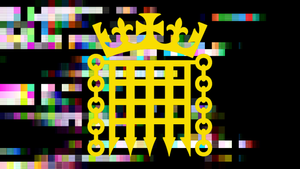Copyright and AI was discussed in the UK Parliament again yesterday as the House Of Commons debated the Data Bill that the House Of Lords amended last month to include some copyright obligations for AI companies.
The debate occurred as the deadline for the UK government’s consultation on copyright and AI looms, with the expectation that the creative industries will strongly oppose the proposal put forward by ministers that a new text and data mining copyright exception for AI companies should be introduced into UK law.
That exception would mean AI companies could make use of other people’s content when training models without getting permission, except where copyright owners have formally ‘reserved their rights’.
A number of MPs taking part in the debate welcomed the amendments that were made last month in the House Of Lords. Those amendments - if made law - would require all AI platforms marketing their products in the UK to comply with British copyright law, while also forcing transparency about how creative works are being used.
Addressing Peter Kyle, the government’s Secretary Of State For Science, Innovation And Technology, SNP MP Pete Wishart - who is also a musician, having been a founding member of Scottish rock group Big Country, and a member of Runrig - noted that the UK’s creative industries “are excited” about the Lords’ amendments which, he said, “they see as their guarantee and protection against the ravages of generative artificial intelligence”.
Those amendments are designed, he added, to “protect our creative industries”. With that in mind, he asked Kyle, “will the Secretary Of State assure the house today that he will respect them and keep them in the bill, with no attempt to water them down?”
The technology minister fudged his reply slightly, starting by bigging up the creative industries and then by honing in on the ongoing consultation on copyright and AI. That consultation, he said, “is a meaningful one and I assure the house that I am engaging with it”.
He added that the consultation is likely to result in its own legislation on copyright and AI, which would give the house “an opportunity to go through this issue in enormous detail at the appropriate time”. As for the Data Bill - which will next be scrutinised by a committee of MPs - “I want to engage with all the voices throughout the committee stage and ensure that the debate continues”.
With Kyle having brought up the AI and copyright consultation, Lib Dem MP Jess Brown-Fuller noted that many in the creative industries have criticised the government for the fact that it seems to have already decided it wants to introduce the new copyright exception for AI companies while the consultation is still ongoing.
She asked Kyle if the government would ensure that the UK’s “creative voices” will continue to be heard as ministers evolve their AI policies. “Without adequate protection for those creatives and without greater transparency over when their intellectual property is being scraped”, she added, “the creative industries as we know them will cease to exist”.
Although Kyle repeated his praise for the country’s creatives and creative industries, he did then remember to big up the other side in the big dispute over the copyright obligations of AI companies, that being the AI companies.
“This country has the third largest AI market in the world”, he said. “There are young people currently studying in schools, colleges and universities around the country who aspire to work in the technology sector, and they should not have to leave the country and work abroad in order to fulfil their potential”.
Concerns about the impact of the proposed copyright reforms to benefit AI companies didn’t only come from the opposition benches. Labour MP and Musicians’ Union member Anneliese Midgley focused on musicians in particular when raising her concerns.
“Big tech companies should not be able to generate and profit from music without permission or payment”, she said. “How can we justify taking money away from British musicians and handing it to tech firms for free? That does not support growth; it undermines it”.
Outlining the many challenges faced by artists and songwriters today, she added, “As the party of labour, with a commitment to make work pay, this government should ensure that artists, songwriters and musicians are fairly paid for their work and protected from exploitation by faceless tech companies”.
The deadline for submissions to the government’s AI consultation is 25 Feb. The timeline for the committee stage of the Data Bill in the Commons is still to be confirmed.
Alongside proceedings in Parliament, artificial intelligence more generally has been in the political spotlight even more than normal this week because of the international AI Summit held in Paris.
UK ministers were under fire there too for joining with the Americans in refusing to sign a global declaration in which countries from around the world have committed to ensure that AI is open, inclusive, transparent, ethical, safe, secure, trustworthy and sustainable. Though the UK government said its decision wasn’t an attempt to court favour with US President Donald Trump.
At the Paris summit, the US declined to sign the global declaration to ensure inclusive, safe and sustainable AI after the country’s Vice-President JD Vance delivered a speech criticising the European Union for over regulating big tech in general and AI in particular.
For its part, the UK government said it hadn’t joined France, Japan, Australia, Canada, China and India in signing the declaration, not to placate the US, but because it felt some of the key points lacked clarity.
“We agreed with much of the leaders’ declaration and continue to work closely with our international partners”, a government spokesperson said. “However, we felt the declaration didn’t provide enough practical clarity on global governance, nor sufficiently address harder questions around national security and the challenge AI poses to it”.
Make of that what you will.

